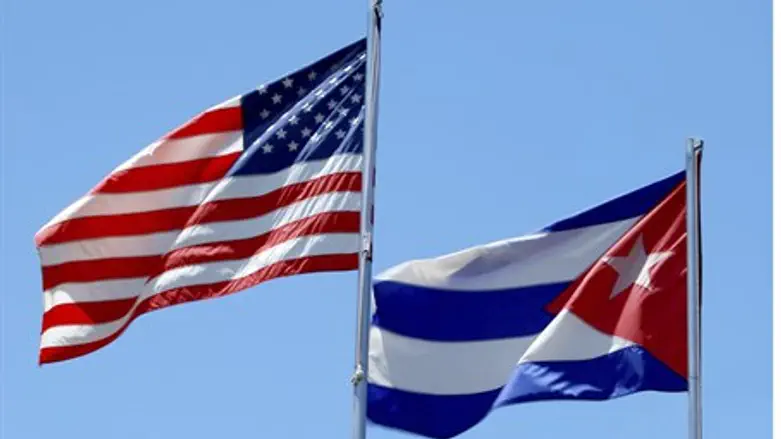
The United States and Cuba were on the brink of a historic thaw in ties Wednesday after a prisoner exchange cleared the way for talks on ending their five-decade-old stand-off, according to AFP.
Presidents Barack Obama and Raul Castro were to make major speeches after Havana released US contractor Alan Gross in exchange for three Cubans held in the United States for spying.
The United States imposed a trade embargo against Cuba - the Cold War foe closest to its shores - in 1960; the two countries have not had diplomatic relations since 1961.
A US trade embargo hurt the Caribbean island state's economy, but it failed to unseat the Havana governments led first by revolutionary leader Fidel Castro and latterly by his brother Raul.
Obama now has only two years left in office, Fidel Castro is 88 and ailing and Raul is 83. With the window for the rival leaders to revive relations, both sides are under pressure to make a gesture.
Separately, the White House and the Cuban governments announced that the presidents would make major addresses on relations between their countries at 5:00 pm GMT (7:00 pm IST).
It was immediately reported that Obama's address would mark a major breakthrough towards a resumption of diplomatic relations and a slackening in the sanctions regime.
US lawmaker Dick Durbin, a senior lawmaker and member of the Senate foreign relations committee, hailed the move.
"Opening the door with Cuba for trade, travel and the exchange of ideas will create a force for positive change in Cuba that more than 50 years of our current policy of exclusion could not," he said.
The thaw came as officials confirmed the prisoner exchange. Gross was freed after five years in jail in Cuba in exchange for three Cubans - "a swap with intel assets" - a US official said.
Both sides had previously made the release of their nationals a precondition for opening negotiations on warmer ties.
Despite the tensions, both Cuba and the United States have maintained channels of communication, even as Havana has taken steps to liberalize its communist-led command economy.
The rivals have maintained "interests sections" in each other's capital, and contacts have increased in recent months as medical teams from both countries responded to the Ebola epidemic in West Africa.
Obama has also eased rules on travel by US citizens and residents to the island, while sticking to a hard line trade embargo against a country just 90 miles (150 kilometers) off the coast of Florida.
Several polls have shown that a majority of Americans favor a change in policy toward Cuba, even in Florida, home to a large anti-Castro
Cuban-American community.
Gross's release came two weeks after a desperate plea by his wife, who has accused both governments of using her husband as a diplomatic pawn.
"Enough is enough. My husband has paid a terrible price for serving his country and community," said Judy Gross, in a statement released on the fifth anniversary of his jailing.
"Alan is resolved that he will not endure another year imprisoned in Cuba, and I am afraid that we are at the end," she said.